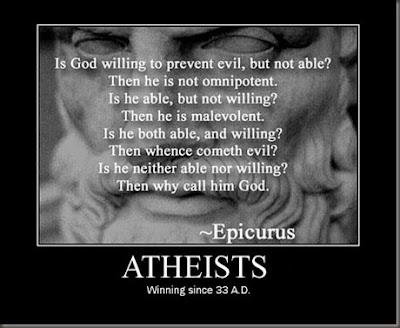Storm
ThrUU the Looking Glass
Copernicus' OP from original thread:
Actually, I am firmly convinced that no gods exist, but it is much easier to reject belief in the Abrahamic God, whose omnimax qualities tend to make him an impossible being. But most people in my world believe in some version of the Abrahamic God, so I'm happy to pick on that one here. I have given a lot of thought to this since I became an atheist decades ago, and the conviction has only grown stronger over time.
In general, I cannot find any reasonable evidence to support belief in gods (spirit beings that have absolute power over some aspect of reality), but that is not what makes my rejection of theism a conviction. What makes it a conviction is the convergent set of positive observations that render god-belief untenable:
Actually, I am firmly convinced that no gods exist, but it is much easier to reject belief in the Abrahamic God, whose omnimax qualities tend to make him an impossible being. But most people in my world believe in some version of the Abrahamic God, so I'm happy to pick on that one here. I have given a lot of thought to this since I became an atheist decades ago, and the conviction has only grown stronger over time.
In general, I cannot find any reasonable evidence to support belief in gods (spirit beings that have absolute power over some aspect of reality), but that is not what makes my rejection of theism a conviction. What makes it a conviction is the convergent set of positive observations that render god-belief untenable:
- Minds require brains to sustain existence. Spirit beings have brainless minds.
- Complex living beings are not intelligently designed. The diversity of life is comprehensively explained by Darwin's theory of common descent with modification by natural selection.
- Human beings are obviously prone to inventing false religions to explain their world and help them cope with it.
- Prayer does not work. In fact, nothing else seems to fail quite so often and quite so spectacularly.
- Religious belief always retreats in the face of alternative natural explanations. IOW, there are no miracles.
- Evil exists, despite the claim that an omnipotent gop opposes it.
- God is silent, although there is no good reason why he should be incapable of tangible, overt communication with us.

